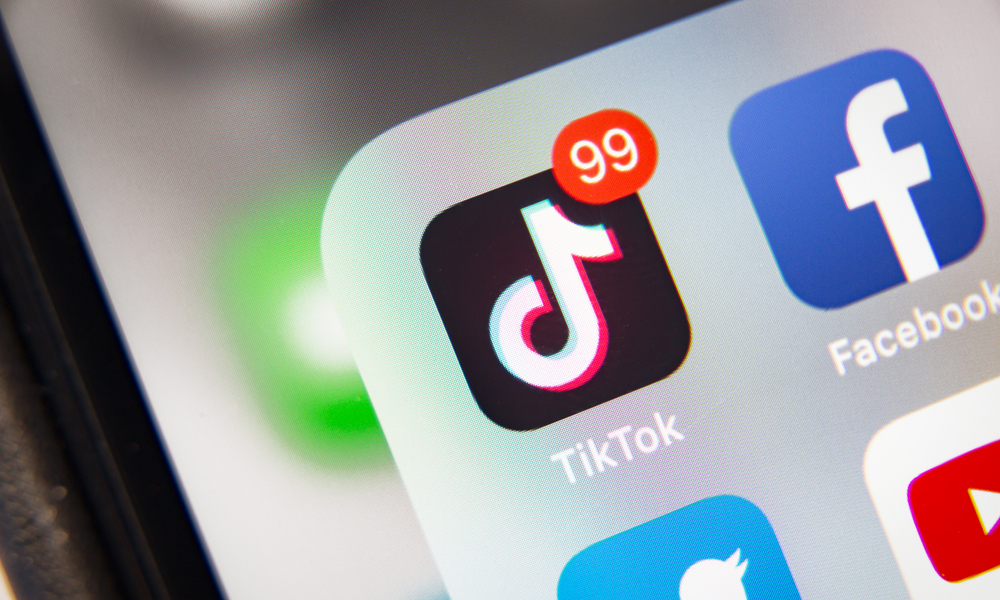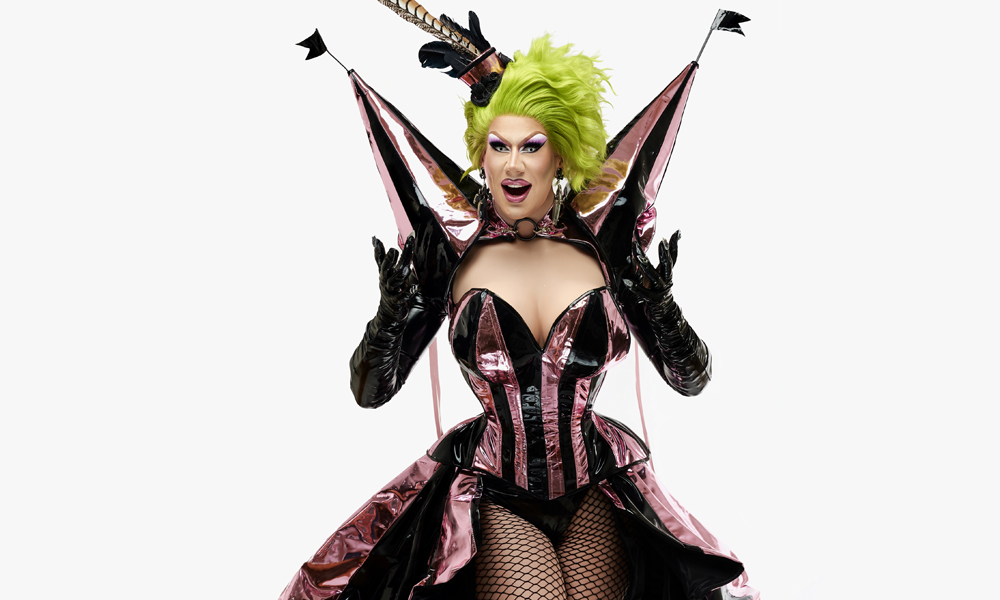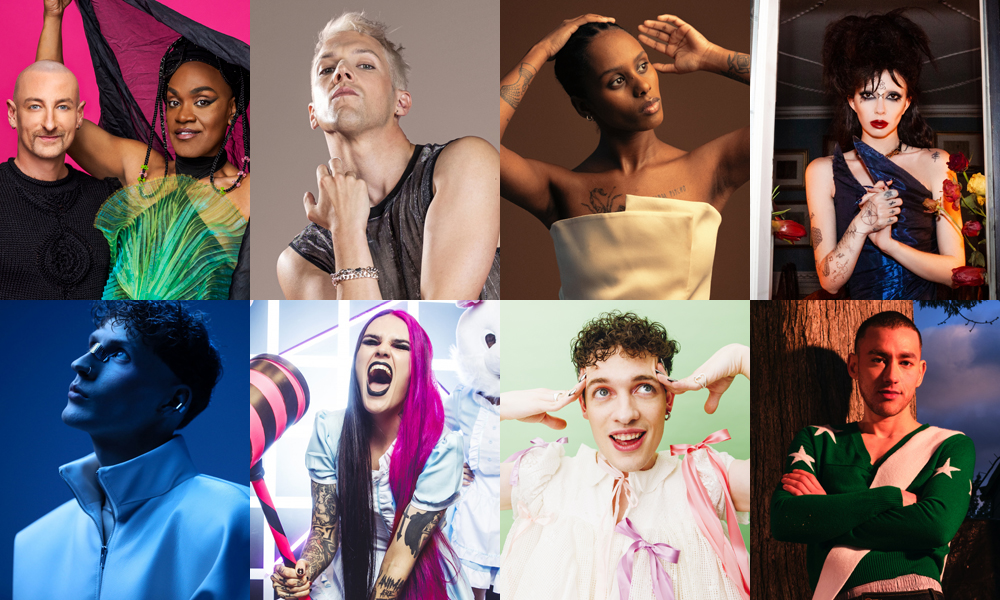TikTok has introduced a new nonjudgmental, conversational style for sexuality…
By Paul Gallant
I knew the short-video social media app TikTok was doing something weird to the culture when I started seeing videos of teenage guys shamelessly joking with their mothers about getting “wrecked” by their boyfriends as their mothers either rolled their eyes at their sons or egged them on.
The videos – so short, so simple – presumed a lot about these people: that these young gay guys were not only out to their families, but out about their sexual activity to their families and out about exactly which sexual activities/positions they were down with. The videos also suggest that the parents are comfortable wondering aloud about what might have caused their son to be walking funny. And all participants involved seemed not only to be casual about the mechanics of anal sex, but also unashamed at having millions of viewers see them chatting and joking about it.
Over the course of history, human cultures have vacillated back and forth between being uptight or explicit in how we talk about sex. In Volume 1 of his History of Sexuality, the late philosopher Michel Foucault wrote that at the beginning of the 17th century, “sexual practices had little need of secrecy; words were said without undue reticence, and things were done without too much concealment; one had a tolerant familiarity with the illicit.” Then, in the Victoria era that dominated the 19th century, “silence became the rule. The legitimate and procreative couple laid down the law.”
I would sort modern sex talk into roughly three categories: sex talk of the streets, which can be vulgar and salacious, often more about showing off than expressing real desire or wisdom; sex talk of the sheets, that is, between people having sex and therefore more functional than conversational; and sex talk of the elites, which is the clinical talk of educators, officials and counsellors, where “facilitating lubrication of the rectum” has all the lusty thrill of “during congealing, soot particles begin to stack,” from an automotive repair manual.
Even in the era of the internet, and its supposed ability to empower people to share ideas and feelings previously considered unshareable, these categories have held sway, though they sometimes overlap in the realm of fan fiction, when misguided writers use grandiose clinical language while grasping for erotic effect, and in the realm of pornography, where functional sex talk becomes bravado, e.g., “Take that massive dick, bitch!” Modern advice columnists can be a little raunchy, sure, but always have an ethical POV: certain behaviours are framed as “wrong” and others are “right.” The Dan Savages and Daniel M. Laverys of the world never just put something out there to allow readers or listeners to decide for themselves what to think about it. So I’d categorize sex and relationship gurus as “elites,” no matter how many dirty words they use.
Social media platforms like Facebook and Instagram have done little, in my opinion, to evolve sex talk. Twitter contains both the educational and the pornographic categories of it – too much of both, probably. But TikTok has introduced a new lighthearted, nonjudgmental conversational style for sexuality. The easy-going approach often comes across more like people are talking about a meal, bad drivers or amateur softball than, say, pegging, masturbating or negotiating threesomes. Watching 15-second TikTok videos for a couple of hours can provide a map of the steamy side of contemporary queer life more vividly than a TV series, movie or novel.
TikTok is not where you’d predict this would be happening. Owned by a Chinese company, it’s one of the most censorious social media platforms. But I think it’s the very constraint of that censorship that has forced content creators to frame queer sexual content in different ways. They have to be clever, they have to be playful, and then the algorithms push that clever and playful content to the top. Creators communicate their ideas in such a devious a way that, even if a creator doesn’t use a single word related to his genitalia, he can, at the end of the video, look at the camera, shrug and leave the viewer to come to the conclusion: “Oh, he’s saying he has a dick so big that his boyfriend dumped him!”
There is a learning curve to interpreting all the subliminal exhibitionism. When the #marrymejulietchallenge of last year started to show up on my “For You Page,” I first thought, “These guys are being corny with this old Taylor Swift song.” When Taylor sings “pulled out a ring,” the guys in the videos do a pantomime gesture like they’re opening a ring box. Then I noticed the pelvic thrusting part of #marrymejulietchallenge and how so many of the guys doing the dance were freeballing in their grey track pants. A TikTok’s purported purpose isn’t always the reason it’s popular.
TikTok censorship has produced mysterious phrases like “g4y” (easy to decode), “Charmander” (a reference to a Pokémon character that one creator substitutes for “cock”) and “babies” (in place of, um, cum). The literal words are usually innocent, but if you know the code, the images placed in your heads can be explicit and visceral.
“When you consume your own seed,” says the text on Stevenstemjr69’s TikTok. “Don’t you feel silly, don’t you feel stupid, don’t you feel a little ashamed.” Then he gives a “tiny bit” hand gesture. In another, Stevenstemjr69 “wakes up ready go hard at the gym,” then “gets cheeks clapped instead.” In yet another, the text says, “To all the people who don’t have to slip a finger in to finish,” with the video ending with Steven turning to the camera and lip-syncing the words, “I’m jealous,” to an extract from the Julia Michaels song “Issues.”
Sorry if that was confusing. Yes, it’s hard to recap TikToks, which mesh spoken word, text, gestures, snippets from popular songs and spoken-word audio to get their point across. The audio, in fact, is passed around like a favourite bottle of poppers, with various creators lip-syncing to the same soundtrack or adding unexpected video images to well-known audio. This “passing around” of content – with the same formats and scripts repeated hundreds, perhaps thousands, of times – can make twisted ideas seem downright normal. The first time you hear a creator joking about spitting on his boyfriend, it might be startling. But TikTok loves to give you more of the same. So when the same piece of music and the same format repeats the idea for days, a TikTok consumer might finally end up thinking: I guess everybody’s doing it. The first teenager who talked about “getting wrecked” in front of his parents set up a template for hundreds or thousands of others to do so, and at a certain point, people’s comfort levels change.
There are a lot of top/bottom jokes on queer TikTok, which can sometimes be quite graphic, with hot guys talking about their douching regimes or oral sex techniques. @butterflyxboy: “What’s the difference between a mosquito and me? A mosquito stops sucking after you slap it.”
And there’s still lot of boasting. Palm Springs couple Cam and Alex, @gaybrostube, are always posting about their insatiability: “What’s the most down-bad you’ve ever been?” “I’ll start. One time he was travelling and I was so down-bad I beat off to his bit emoji.”
Cam and Alex have an OnlyFans page, where you pay a monthly fee to watch more explicit content from them – which takes us to another aspect of TikTok that makes it so easygoing about sex. So many TikTok creators are porn stars, wannabe porn stars, actors, personal trainers and life coaches, all of whom use the videos as commercials to attract customers for their paid work. And what do these professions have in common? They’re dominated by attention seekers and show-offs (might I say narcissists?). Most of them are hardwired shameless – why wouldn’t they tell the world about a bad experience they had eating ass? And who but an obsessed performer is going to spend so much of their awake time making videos? For better or worse, these unabashed self-promoters now set the limits on what’s acceptable.
As crass as queer TikTok can be, we may be better off knowing the ways tops act selfishly or what makes bottoms impatient. Accessible honesty could, ultimately, help us get more of what we want out of our sex lives. As @spencer_wi puts it, addressing two tops who “don’t want to top:” “I always follow what my heart says and my heart says double penetration so bye.”
—
PAUL GALLANT is a Toronto-based writer and editor who writes about travel, innovation, city building, social issues (particularly LGBT issues) and business for a variety of national and international publications. He’s done time as lead editor at the loop magazine in Vancouver as well as Xtra and fab in Toronto.






POST A COMMENT